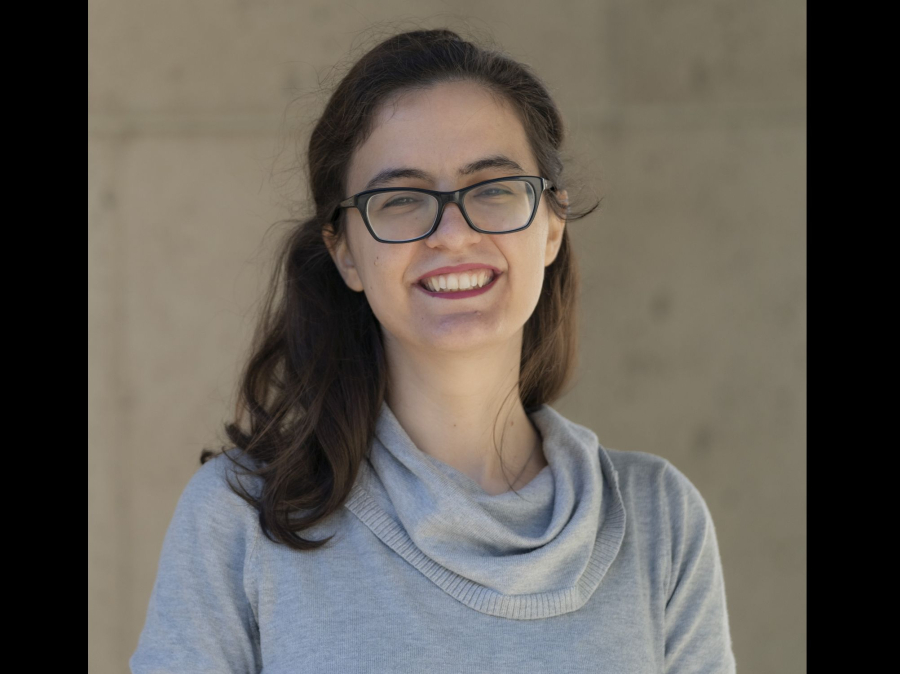William A. Brookshire Department of Chemical and Biomolecular Engineering assistant professor Gül Zerze, Ph.D., has earned a National Science Foundation (NSF) CAREER award for $500,000 for her proposal, “Unveiling the Dynamics of Liquid-like Macromolecular Condensed Phases from Nucleation to Stability.”
The three states of matter are largely conceived of as separate entities, but the behaviors and boundaries between these concepts are perhaps more fluid than many might first think. Zerze’s research concerns liquid solutions containing polymers, or macromolecules, and is “100 percent computational.”
“I still remember, as a kid, how excited I was when I first got to see how tiny particles wiggle and jiggle. You can only see it under a microscope, but that wiggling and jiggling behavior leads to the collective behavior of matter,” Zerze said.
“[Polymer solutions] are liquids, but not a pure substance like water or ethanol. These liquids — mixtures of these polymers — sometimes split into two distinct liquid phases. One would be what we call the dilute phase, which would be rich in solvent (typically water); the other would be the dense phase, which is richer in polymer but retains liquid-like properties,” she said. “What I am studying in this project is the nucleation of these liquid condensed phases from solutions of macromolecules; the formation of macromolecular liquid condensed phases and how they nucleate.”
Deepening our understanding of these behaviors paves the way for researchers “to control the formation of those liquid condensates” in specific applications.
“We want to be able to precisely control this nucleation to enable industrial and therapeutic innovations,” she said.
Some of these innovations include nutrient encapsulation in the food industry, agricultural formulations, self-healing construction materials, and electrorheological fluids for the automotive and aerospace industries. Intracellular condensates also have implications in human disease processes. Things may occur as expected in healthy cells, but procedural errors or changes in concentration can have clinically significant impacts on the body that lead to disease.
“My engineering education has given me an incredible perspective,” she continued. “It gave me the tools of applied math and applied physics so that I can solve outstanding problems of living matter. I think this is a unique advantage of being an engineer or having an engineering background. At heart, I’m a very, very traditional chemical engineer. I may not be literally 'engineering' anything today — I may be using my knowledge in a different field — but that’s the beauty of it.”
“I am on a quest,” she added. “I know that we will find novel phases of matter. What I learn from this process will also, in the future, help us to perhaps learn more or to discover a new phase that hasn’t been known before.”
Zerze’s enthusiasm and gratitude for the award are rooted not only in the material value of the research she is undertaking, but in the immaterial and abstract lessons she has already learned over the course of the application process.
“I outlined, in this project, the trajectory of my career path, my research and my educational goals for not just the next five years, but perhaps the next 10 or more years. It’s an honor to have this proposal awarded,” she said.
“It’s not just for the sake of this specific project. This CAREER award places me, as a whole, into academia — not just as a scholar, thermodynamicist, but also as an educator: teaching undergraduate thermodynamics, teaching graduate statistical mechanics, having outreach programs to high school students to interest them in molecular motions… The monetary prize that comes with this award may not be the largest grant, but this award places me in academia as a teacher-scholar, which I think is unfortunately sometimes a bit overlooked.
“My identity as a scientist — who I actually am — is still a work in progress,” Zerze concluded. “Finding the outline of who I actually am came with this proposal. The process itself really taught me a lot about myself. I’m forever thankful for that, and to this award for giving me an opportunity to frame who I want to be as a scholar, educator, and mentor.”
For a previous profile story on Zerze's work, click here!
